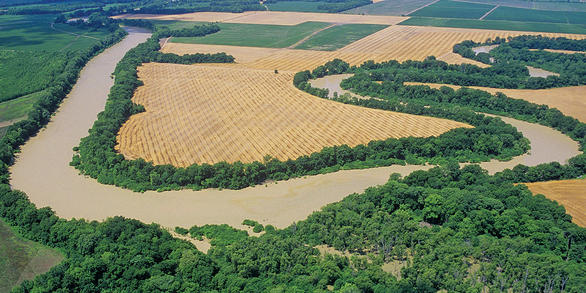
Introuction:
India, with its vast agricultural landscape and diverse food production systems, faces significant challenges in maintaining the integrity of its food supply chain. One of the most pressing issues is water contamination, which has far-reaching implications for food safety, public health, and economic stability. As a country that relies heavily on agriculture, understanding the impact of contaminated water on food production and distribution is crucial.
Sources of Water Contamination:
Water sources in India are frequently contaminated due to a combination of industrial discharges, agricultural runoff, and inadequate waste management. Industrial effluents often contain heavy metals and toxic chemicals, while fertilizers and pesticides used in agriculture can leach into rivers and groundwater. Urban areas contribute to this problem as untreated sewage is commonly discharged into water bodies. This situation is exacerbated by the lack of effective regulation and monitoring of water quality, leaving many agricultural regions at risk.
Effects on Crop Production:
Contaminated water has a direct impact on crop production. Irrigation with polluted water can lead to the absorption of harmful substances by plants, affecting their growth and yield. Crops grown under such conditions may contain toxic residues, posing risks to consumers. For example, vegetables irrigated with contaminated water have been found to harbor pathogens and chemical residues, increasing the likelihood of foodborne illnesses. Additionally, the overall productivity of farms may decline, as crops struggle to thrive in polluted environments.
Impact on Livestock:
The implications of contaminated water extend beyond crops to livestock. Animals that drink polluted water or consume feed grown with contaminated irrigation face health risks that can affect their growth and productivity. Livestock diseases linked to water contamination can lead to reduced milk and meat production, undermining the livelihoods of farmers and impacting food availability in local markets. Furthermore, the consumption of contaminated animal products can pose severe health risks to consumers.
Economic Consequences:
The economic ramifications of water contamination in the food supply chain are significant. Decreased agricultural productivity results in lower incomes for farmers, which can perpetuate cycles of poverty, particularly in rural areas. Additionally, the costs associated with treating contaminated water and addressing health issues can strain public resources. Consumers may face higher prices for safe food options, further exacerbating food insecurity for low-income populations. In this context, the economic stability of entire communities can be jeopardized.
Public Health Risks:
The public health implications of contaminated water are profound. The consumption of contaminated food and water can lead to a host of health issues, including gastrointestinal diseases, neurological disorders, and even long-term chronic conditions. Vulnerable populations, such as children and the elderly, are particularly at risk. The burden of disease stemming from water contamination strains healthcare systems and reduces workforce productivity, creating a cycle of health and economic decline.
Mitigation Strategies:
Addressing the impact of contaminated water on India’s food supply chain requires comprehensive strategies. Improved water management practices, including the treatment of wastewater and the promotion of sustainable agricultural practices, are essential. Farmers need education on the safe use of water resources and the benefits of organic farming methods that reduce reliance on chemical inputs. Strengthening regulatory frameworks and enhancing monitoring of water quality can help identify contamination sources and enforce accountability.
Conclusion:
The impact of contaminated water on India’s food supply chain is a complex issue that intersects with agriculture, public health, and economic stability. To safeguard food safety and protect the livelihoods of millions, it is imperative to prioritize clean water initiatives and sustainable practices. By taking proactive measures, India can not only ensure a stable food supply but also promote the health and well-being of its population, fostering a more resilient agricultural sector for future generations.


